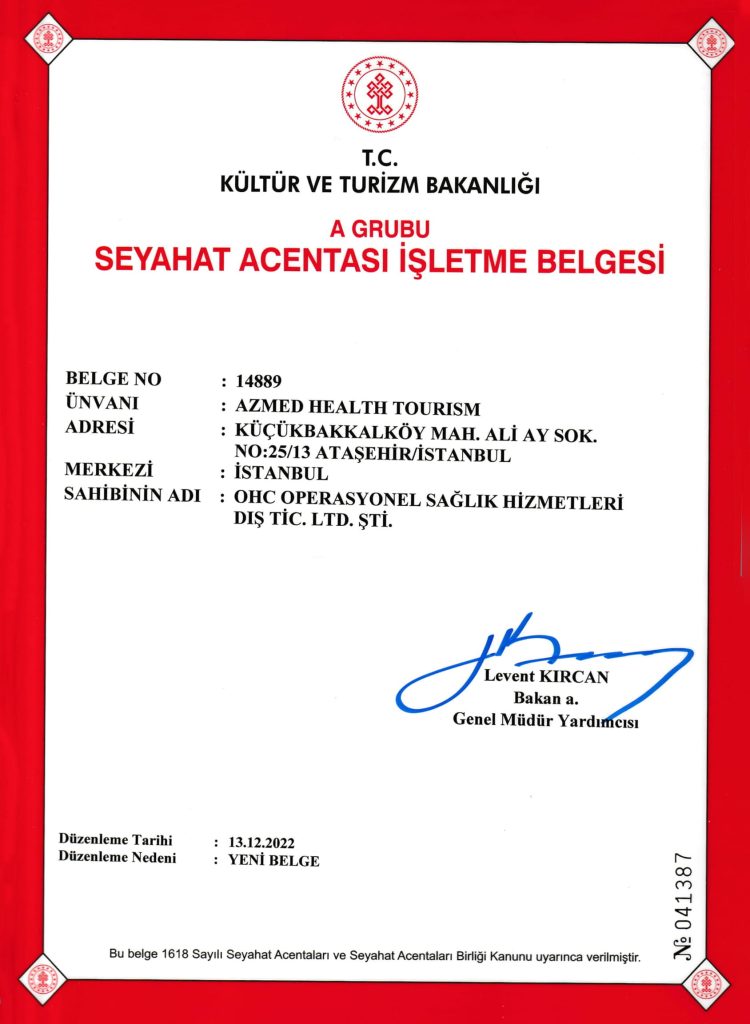Gastric Bypass
Gastric bypass surgery is one of the most common bariatric surgical procedures. The most frequent kind of combination surgery is a laparoscopic gastric bypass (R-YGB). Gastric bypass surgery is one of the treatments that has gained recognition due to its favorable outcomes in bariatric surgery. While the stomach capacity is lowered with this procedure, nutritional absorption is reduced because the distance taken in the small intestine is shorter. In the first step, this operation disables 90% of the stomach in the morbidly obese (deadly condition) patient. The remaining 10% of the stomach is roughly the size of a “cup,” and it is 130-150 cm ahead of the small intestine (which is 600cm long on average) with the second motion (60-80% of sugar and fat are absorbed from this region, and the objective is to eliminate sugar and fat).
The procedure is done when the deactivation of the intestine region where it is most absorbed) is linked. Patients who are scheduled for surgery are thoroughly evaluated. In addition to physical testing, each patient is thoroughly assessed by endocrinology and psychiatric specialists prior to surgery. Postoperative patients require 4-6 days of hospitalization. The dietician plans the diet until the first control after discharge. Aside from the bariatric surgeon, an endocrinologist, psychiatrist, and dietician provide intensive monitoring throughout the first year.
What Factors Should be Considered in Diet Following Gastric Bypass Surgery?
- Make sure you consume at least three meals daily and eat healthily.
- Meals should generally contain protein, fruit and vegetables, and whole-wheat cereal.
- Liquid foods should be taken during the first two weeks, and mashed meals should be consumed during the third, fourth, and fifth weeks.
- To avoid dehydration, drink at least 1.5-2 liters of liquids. (With a minimum of 6-8 glasses of water per day) Otherwise, such symptoms as headache, dizziness, nausea, weakness, white blisters on the tongue, and black urine may occur.
- Foods that are soft and clear should be taken. For example, diet/diabetic puddings made with low-fat milk, mashed potatoes, milk-soaked cereals, cottage cheese, soft omelets, and mashed fish might be preferred.
- Avoid simple sugars (granulated / sugar cubes, confectionery, candies, etc.).
- When the meal is pureed, it is critical to chew it well and swallow it. Food that has not been thoroughly chewed might obstruct the stomach outflow, producing pain, discomfort, and vomiting.
- Ensure that you obtain adequate protein. Three glasses of skim milk or soy milk each day can supply enough protein and calcium to keep you healthy.
- Solid and liquid foods should never be consumed concurrently. Drinking liquids with meals induce early vomiting because it fills the remaining little stomach. It may promote early satiety by extending the stomach, or it may not cause satiety by cleansing the stomach early and causing you to feel hungry.
Date:
November 5, 2022






